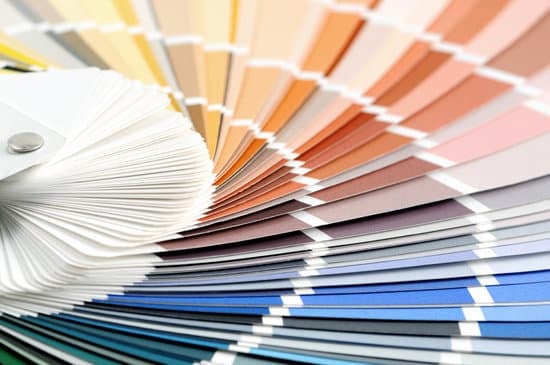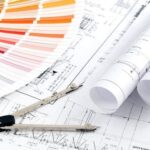Running a home improvement business can be both fulfilling and profitable. With the increasing demand for home improvement services, there is no shortage of opportunities in this industry. Whether it’s renovating kitchens and bathrooms, landscaping outdoor spaces, or providing interior design services, home improvement businesses offer a versatile range of services that cater to the needs of homeowners and businesses alike.
One of the main advantages of starting a home improvement business is the potential for profitability. As more people invest in their homes and prioritize comfort and aesthetics, the demand for these services continues to grow. With careful planning and strategic execution, a well-run home improvement business can yield significant profits.
However, before embarking on this venture, it is crucial to have a solid plan in place. Without proper planning and strategy, it may be challenging to navigate the competitive landscape of the industry successfully. By developing a comprehensive business plan that outlines your goals, target market, marketing strategies, financial projections, and operational plan, you can set yourself up for success from the start.
Identifying Your Target Market
In order to run a successful home improvement business, it is crucial to identify and understand your target market. Without a clear understanding of who your customers are, it can be difficult to tailor your services and offerings to meet their needs. By identifying your target market, you can effectively market your business and maximize your profitability.
There are various market segments within the home improvement industry that you can consider when identifying your target market. These include residential, commercial, interior design, landscaping, and more. Each segment has its own unique set of needs and preferences, so it’s important to conduct thorough market research to determine which segments align best with your business goals and capabilities.
One key tip for conducting market research is to gather data on the demographics and psychographics of your potential customers. This includes information such as age, income level, lifestyle preferences, and purchasing behavior. By collecting this data, you can gain insights into their motivations and preferences when it comes to home improvement services.
Once you have identified your target market, you can then tailor your services and offerings to meet their specific needs. For example, if you are targeting the residential segment, you may want to offer services such as kitchen or bathroom remodeling, painting, or flooring installation. On the other hand, if you are targeting the commercial segment, you may want to focus on office renovations or retail space remodeling.
By understanding your target market and customizing your services accordingly, you can position yourself as a specialist in that particular niche. This will not only help differentiate your business from competitors but also attract customers who are specifically looking for the services you offer.
To summarize:
- Identify various market segments within the home improvement industry.
- Conduct thorough market research on demographics and psychographics.
- Tailor your services and offerings to meet the specific needs of your target market.
By taking these steps in identifying your target market, you can effectively position yourself in the home improvement industry and increase your chances of success.
Creating a Business Plan
Creating a business plan is crucial for the success of your home improvement business. A well-thought-out and comprehensive business plan can serve as a roadmap that guides your actions and decisions. It also helps you secure financing from lenders or investors, and provides a solid foundation for growth and scalability. Here are some key components to include in your business plan:
- Mission Statement: Start by clearly defining your company’s mission statement, which should articulate its purpose, values, and goals. Your mission statement will guide the overall direction of your business.
- Executive Summary: This section provides an overview of your company, including its history, current status, and future plans. Keep it concise and compelling to capture the attention of readers.
- Market Analysis: Conducting thorough market research is essential to understand your target audience, competitors, and industry trends. Analyze market segments within the home improvement industry to identify potential opportunities and challenges.
- Sales and Marketing Strategy: Outline how you plan to promote your services, reach your target market, and differentiate yourself from competitors. Include details on pricing strategies, advertising tactics, and branding efforts.
- Financial Projections: Provide detailed projections for revenue, expenses, and cash flow for at least three years. This section should include income statements, balance sheets, cash flow statements, break-even analysis, and other financial data.
- Operational Plan: Describe the operational aspects of your home improvement business such as location(s), equipment needed, inventory management procedures, staffing requirements, and quality control measures.
While creating your business plan:
- Be realistic in setting goals and projections.
- Use reliable sources for market research data.
- Seek professional guidance if needed.
- Regularly revisit and update your business plan as necessary.
Remember that a well-crafted business plan serves not only as a guiding document but also as a tool to attract investors or secure financing when needed. It demonstrates that you have a clear understanding of your industry, target market, and long-term business goals. As you develop your home improvement business plan, keep in mind that flexibility is also important. Your plan should adapt to changes in the market and evolving customer demands.
Establishing Legal and Licensing Requirements
When starting a home improvement business, it is essential to understand and comply with the legal and licensing requirements of your locality. By adhering to these regulations, you can operate your business legally, build trust with customers, and avoid potential fines or penalties. In this section, we will explore the key steps involved in establishing legal and licensing requirements for your home improvement business.
Understanding Legal Obligations
Before launching your home improvement business, it is crucial to research and obtain a comprehensive understanding of the legal obligations specific to your industry and location. Different jurisdictions may have varying requirements, permits, licenses, registrations, certifications, and insurance policies.
Consult with local government offices or regulatory bodies governing businesses in the construction or renovation sector. They can provide information on permits needed for particular types of projects or services offered by your business.
It is also advisable to consult with an attorney who specializes in construction law or small business law to ensure that you are fully compliant with all relevant laws and regulations.
Obtaining Required Permits and Licenses
Once you have identified the necessary permits and licenses for your home improvement business, it is important to obtain them before commencing operations.
Contact local government offices responsible for issuing permits and licenses for businesses in the construction industry. These may include building permits, contractor licenses (if applicable), trade-specific licenses (e.g., electrical or plumbing), Home Improvement Contractor (HIC) registration certificates, or Occupational Safety and Health Administration (OSHA) certification.
Ensure that you gather all required documentation before submitting an application. This may include proof of insurance coverage, background checks for certain roles such as contractors or technicians, financial statements demonstrating financial stability to meet obligations if requested by authorities.
Adhering to Regulatory Standards
In addition to obtaining permits and licenses, it is crucial to familiarize yourself with any specific industry regulations and standards that apply to your home improvement business. Compliance with these standards ensures the safety of workers, customers, and adherence to ethical practices.
Some common regulatory bodies include the Consumer Product Safety Commission (CPSC) for product safety regulations, the Occupational Safety and Health Administration (OSHA) for workplace safety requirements, or local building codes and inspections.
By investing time in understanding and meeting legal obligations, you can establish a strong foundation for your home improvement business. Not only does this ensure compliance with the law but also builds trust with customers who value working with professionals who meet all legal requirements.
Remember that legal and licensing requirements may evolve over time due to changes in laws or industry practices. Regularly review your obligations to stay up-to-date and continue being compliant.
Building a Strong Team and Networks
One of the crucial elements for the success of a home improvement business is building a strong team. Assembling a competent and reliable team is essential to ensure that your projects are executed efficiently and to the highest standards. When it comes to hiring professionals for your business, it’s important to carefully assess their skills, experience, and qualifications.
When recruiting contractors, designers, and technicians for your team, consider conducting thorough interviews and reference checks. Look for individuals who have a solid track record in the industry and possess the necessary expertise in specific areas related to home improvement. It’s also beneficial to seek employees or contractors who are passionate about their work and dedicated to providing exceptional service.
Additionally, networking with suppliers, trade associations, and industry professionals can be highly advantageous for your home improvement business. Building strong relationships within the industry not only opens doors to potential partnerships but also allows access to valuable resources such as industry trends, new techniques or materials, and referrals. Attending trade shows or joining professional organizations can provide opportunities to connect with other professionals in your field.
By nurturing strong networks, you can establish yourself as a reputable player in the home improvement industry and gain valuable insights from others’ experiences. Collaborating with suppliers can also lead to favorable pricing terms or exclusive deals on materials. Furthermore, by staying connected with industry professionals through forums or networking events, you can keep up-to-date on best practices and learn from their successes and challenges.
In summary, building a strong team of skilled professionals and fostering networks within the home improvement industry are crucial steps towards running a successful business. By carefully selecting team members based on their qualifications and dedication to excellence, you can ensure that your projects are completed effectively. Additionally, networking opens doors to potential collaborations while allowing access to invaluable resources that can contribute to the growth of your business.
Effective Marketing and Branding Strategies
In order to run a successful home improvement business, effective marketing and branding strategies are crucial. These strategies help you promote your business, reach your target market, and establish a strong brand identity that resonates with your customers. Here are some key considerations for developing effective marketing and branding strategies for your home improvement business.
Developing a Strong Brand Identity
One of the first steps in creating an effective marketing strategy is developing a strong brand identity. Your brand should convey what sets your home improvement business apart from competitors and evoke a positive emotional connection with customers. Start by defining your brand values, mission, and unique selling points.
Use these elements to create a compelling brand story that can be communicated consistently across all marketing channels. Consider using professional graphic design services to create a visually appealing logo and consistent branding materials that reflect the personality and values of your business.
Utilizing Online Presence
In today’s digital age, having an online presence is essential for any business, including home improvement businesses. Start by building a user-friendly website that showcases your services, previous projects, customer testimonials, and contact information.
Optimize your website for search engines to increase visibility in search results. Utilize social media platforms such as Facebook, Instagram, and Houzz to engage with potential customers, share before-and-after photos of projects, post informative content related to home improvement tips or trends, and run targeted advertising campaigns.
Implementing Offline Marketing Strategies
While online marketing is important, don’t neglect offline marketing strategies as well. Depending on your target market segment, consider traditional advertising methods such as print ads in local newspapers or magazines or direct mail campaigns targeting specific neighborhoods or demographics. Participating in trade shows or local community events can also help you increase awareness of your home improvement business.
Nurturing Customer Relationships
In the home improvement industry, word-of-mouth referrals are a powerful marketing tool. To encourage positive referrals and repeat business, focus on delivering exceptional customer service throughout the entire customer journey. This includes managing customer expectations, resolving conflicts or issues promptly and professionally, and ensuring clear communication at every stage of a project. Encourage satisfied customers to leave positive reviews online or provide testimonials that can be shared on your website and social media platforms.
By implementing effective marketing and branding strategies, you can enhance the visibility of your home improvement business, attract more customers, and build a strong reputation in the industry. Remember to regularly evaluate the success of your marketing efforts and make necessary adjustments as you grow and evolve in the market.
Delivering Exceptional Customer Service
Providing exceptional customer service is key to running a successful home improvement business. Satisfied customers are more likely to become repeat customers and refer your services to others, which can greatly contribute to the growth and success of your business. In this section, we will discuss techniques for managing customer expectations, resolving conflicts, and delivering personalized service.
One of the most important aspects of delivering exceptional customer service is managing customer expectations. Clearly communicate with your clients about the scope of work, timeline, and any potential limitations or challenges they may encounter throughout the project. This includes being transparent about costs and potential delays. By setting clear expectations from the beginning, you can avoid misunderstandings and create a positive working relationship with your customers.
Resolving conflicts in a timely and professional manner is another essential skill for delivering exceptional customer service. Despite careful planning and execution, conflicts may arise during the course of a home improvement project. It is crucial to address these conflicts promptly and find mutually acceptable solutions. Active communication and effective problem-solving skills can help resolve conflicts while maintaining a positive relationship with your customers.
Personalized service goes a long way in creating happy customers. Take the time to understand each client’s unique needs, preferences, and vision for their home improvement project. Tailor your services accordingly by offering customized design options or recommending materials that align with their tastes. Going the extra mile to deliver personalized service demonstrates your commitment to meeting their individual needs and creates an exceptional customer experience.
Customer Service Tips
| Technique | Description |
|---|---|
| Active listening | Listen attentively to your customers’ concerns, questions, or feedback without interrupting. |
| Regular communication | Keep your customers informed about the progress of their project and any necessary updates or changes. |
| Timeliness | Be punctual and deliver your services within the agreed-upon timeline. |
| Flexibility | Be adaptable to changes requested by your customers, while ensuring that they align with the overall scope of work. |
| Acknowledge and apologize for mistakes | If you make a mistake, take responsibility, apologize sincerely, and find a solution to rectify the situation. |
By focusing on delivering exceptional customer service, you can build a strong reputation in the home improvement industry and attract more clients. Remember that satisfied customers are more likely to become advocates for your business, leading to long-term success.
Financial Management and Profitability
Running a successful home improvement business not only requires providing quality services but also effective financial management. Having a solid understanding of your finances is crucial for long-term sustainability and profitability. In this section, we will discuss some key strategies and practices to help you manage your finances and maximize profitability in the home improvement industry.
One important aspect of financial management is setting competitive pricing. It’s essential to find the right balance between attracting customers and ensuring a reasonable profit margin. Conduct market research to understand the pricing trends in your area and analyze your competitors’ rates. Consider factors such as materials, labor costs, overhead expenses, and desired profit margins when determining your pricing structure.
Accurately estimating project costs is another crucial component of financial management. A thorough understanding of the costs involved in each project allows you to provide accurate estimates to clients while ensuring profitability for your business. Consider all aspects of the project, including materials, equipment, labor, permits, and any unforeseen expenses that may arise.
Effective cash flow management is also paramount in maintaining financial stability. Home improvement projects often require upfront costs for materials or subcontractors before receiving payment from clients. It’s crucial to establish clear payment terms with clients and monitor cash flow regularly to ensure smooth operations. Consider implementing invoicing systems or software that can help track payments, send reminders for overdue invoices, and streamline cash flow processes.
| Financial Strategies | Description |
|---|---|
| Setting Competitive Pricing | Conduct market research to determine optimal pricing that balances attracting customers while maintaining a profit margin. |
| Accurate Cost Estimation | Thoroughly assess the costs involved in each project to provide accurate estimates while considering all potential expenses. |
| Effective Cash Flow Management | Establish clear payment terms, track payments, and implement systems to ensure smooth cash flow operations. |
Proper financial management not only ensures the sustainability of your business but also facilitates growth and expansion opportunities. Maintaining a consistent and positive profit margin allows you to reinvest in your business, upgrade equipment, expand your team, and explore new market segments. Implementing effective financial strategies will help you navigate the challenges and fluctuations of the home improvement industry while maximizing profitability.
Conclusion
In conclusion, running a successful home improvement business requires careful planning, strategic marketing, efficient team management, and strong financial management. With the increasing demand for home improvement services and the potential for profitability in the industry, it is crucial to have a solid plan before starting your business. Identifying and understanding your target market is essential in tailoring your services and offerings to meet their needs.
Creating a detailed business plan that encompasses all key components such as mission statement, market analysis, sales and marketing strategy, financial projections, and operational plan is crucial for success. It provides a roadmap for your business’s growth and helps you stay on track.
Establishing legal and licensing requirements cannot be overlooked either. Understanding and obtaining the necessary permits, licenses, and certifications is vital to operate your home improvement business legally.
Building a strong team of skilled professionals is key to delivering exceptional service. Recruiting reliable contractors, designers, and technicians will ensure quality workmanship that satisfies customer expectations. Networking with suppliers, trade associations, and industry professionals will also help expand your reach and generate more opportunities.
Launching effective marketing campaigns that resonate with your target market ensures brand visibility and attracts potential customers. Utilizing online platforms like user-friendly websites, social media platforms, search engine optimization techniques can significantly boost your presence in today’s digital world.
Providing exceptional customer service is non-negotiable in the home improvement industry. Managing customer expectations effectively resolves conflicts promptly while delivering personalized service builds trust which leads to word-of-mouth referrals and positive online reviews.
Lastly, maintaining solid financial management practices ensures profitability. Setting competitive prices by accurately estimating project costs while keeping track of cash flow will contribute to sustainable growth in the long run.
In summary, thriving in the home improvement industry requires careful planning, effective marketing strategies, efficient team management, exceptional customer service, and strong financial management. By implementing the tips discussed throughout this article with dedication and perseverance, you can build a successful home improvement business that fulfills customer needs and drives profitability.
Remember, continuous learning and development through resources like books or courses can further enhance your skills and knowledge in the home improvement industry. Take action now and start turning your passion into a thriving business.
Frequently Asked Questions
Is home improvement a good business?
Home improvement can be a good business for several reasons. Firstly, many people value their homes and are willing to invest in making improvements to enhance their living spaces. As a result, there is a constant demand for services and products related to home improvement.
Additionally, the housing market tends to fluctuate, but regardless of whether it’s a buyer’s or seller’s market, homeowners often choose to renovate or remodel their properties. This provides opportunities for home improvement businesses to thrive even during economic downturns. However, it’s important to note that competition can be fierce in this industry, so staying up-to-date with trends and providing high-quality work is crucial for success.
How to make money in the home improvement business?
Making money in the home improvement business requires a combination of factors. Firstly, it’s essential to offer a range of services that cater to various customer needs. This could include remodeling bathrooms and kitchens, installing flooring or windows, or providing landscaping services.
By diversifying your offerings, you increase the chances of attracting different clients with different budgets and preferences. Building a strong reputation through excellent customer service and quality workmanship is also crucial for generating repeat business and positive referrals. Lastly, effective marketing strategies such as online advertising and networking with real estate agents can help expand your customer base.
How to start a home improvement business in California?
Starting a home improvement business in California involves several key steps. First and foremost, aspiring entrepreneurs need to research local licensing requirements and obtain any necessary permits or certifications specific to the type of work they plan on doing.
It is also important to establish the legal structure of the business by registering with the appropriate government agencies such as the California Secretary of State’s office or County Clerk’s office depending on whether you want to operate as a sole proprietorship or incorporate your business entity. Acquiring liability insurance is crucial as well given potential risks involved in this line of work.

I’m thrilled to have you here as a part of the Remodeling Top community. This is where my journey as an architect and remodeling enthusiast intersects with your passion for transforming houses into dream homes.





